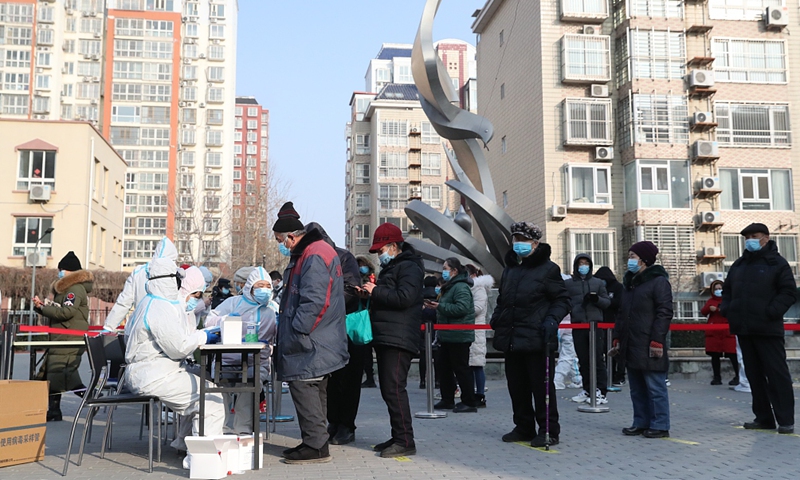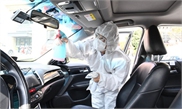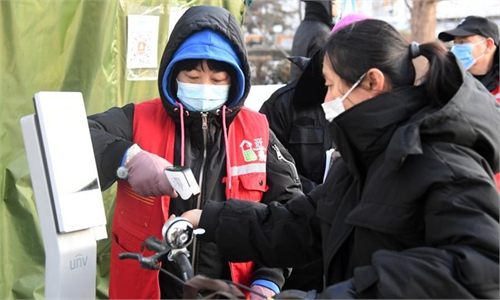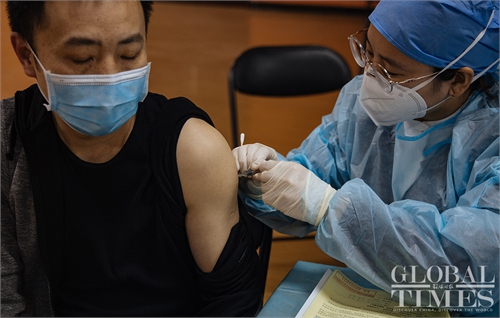
Beijing file photo: VCG
Beijing has imposed closed-off management on all rural villages in its Shunyi district, where a cluster of COVID-19 infections was found in the past two days. The Shunyi outbreak is not connected with a recent flare-up of infections in neighboring Hebei Province, said a Beijing government official.
Over the past weekend, a family of seven living in Shunyi was found to be in-fected with coronavirus, Pang Xinghuo, deputy director of the municipal center for disease prevention and control, said at a press conference on Monday.
The family lives in Lianzhuang village of Shunyi district, and one of the family members runs a small restaurant.
All 432 close contacts of the family have been identified by the local govern-ment.
Pang also announced the implementation of closed-off management on all rural Shunyi villages.
People living in villages should raise their awareness of self-protection and avoid gatherings, urged Pang, noting that they should postpone weddings and simplify funerals in order to curb the spread of the virus.
She said that the cluster of infections in Shunyi district has no connection with the recent COVID-19 flare-up in neighboring Hebei Province.
During the Monday conference, the Beijing government also vowed to guard the capital against the outbreak from Hebei, which reported sporadic infections in recent days.
Wang Yongnian, deputy head of Beijing's Fangshan district, which borders Hebei, said Beijing will check every vehicle and person that passes through the nine checkpoints into Beijing.
It will also screen people who came to Beijing from Shijiazhuang and Xingtai, said Wang, noting that residential community workers, village officials and Party members had been dispatched to conduct "carpet-style" checks on this key group of people.
Wang said they had registered 940,000 non-resident population in village areas.
Fangshan district has tested 25,425 people working in high-risk areas, and all results have come back negative. The district vowed to test 100,000 people in rural-urban regions this week.
Drivers who come to Beijing should have their nucleic acid results ready and register when they arrive at the capital, Wang Hongchun from the Ministry of Commerce said at the conference.
He noted that if accommodation is required, those drivers should go to their appointed places. Drivers should leave Beijing as soon as possible after they have completed their work.
Global Times



